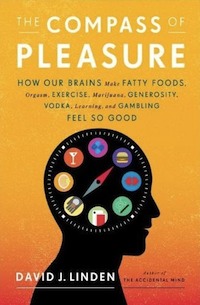I may not know much but I know enough not to write fiction. That doesn't keep me from enjoying these lists from some of my author-heroes.
From Margaret Atwood:
1 Take a pencil to write with on aeroplanes. Pens leak. But if the pencil breaks, you can't sharpen it on the plane, because you can't take knives with you. Therefore: take two pencils.
2 If both pencils break, you can do a rough sharpening job with a nail file of the metal or glass type.
3 Take something to write on. Paper is good. In a pinch, pieces of wood or your arm will do.
4 If you're using a computer, always safeguard new text with a memory stick.
5 Do back exercises. Pain is distracting.
6 Hold the reader's attention. (This is likely to work better if you can hold your own.) But you don't know who the reader is, so it's like shooting fish with a slingshot in the dark. What fascinates A will bore the pants off B.
7 You most likely need a thesaurus, a rudimentary grammar book, and a grip on reality. This latter means: there's no free lunch. Writing is work. It's also gambling. You don't get a pension plan. Other people can help you a bit, but essentially you're on your own. Nobody is making you do this: you chose it, so don't whine.
8 You can never read your own book with the innocent anticipation that comes with that first delicious page of a new book, because you wrote the thing. You've been backstage. You've seen how the rabbits were smuggled into the hat. Therefore ask a reading friend or two to look at it before you give it to anyone in the publishing business. This friend should not be someone with whom you have a romantic relationship, unless you want to break up.
9 Don't sit down in the middle of the woods. If you're lost in the plot or blocked, retrace your steps to where you went wrong. Then take the other road. And/or change the person. Change the tense. Change the opening page.
10 Prayer might work. Or reading something else. Or a constant visualisation of the holy grail that is the finished, published version of your resplendent book.
From Jonathan Franzen:
1 The reader is a friend, not an adversary, not a spectator.
2 Fiction that isn't an author's personal adventure into the frightening or the unknown isn't worth writing for anything but money.
3 Never use the word "then" as a conjunction – we have "and" for this purpose. Substituting "then" is the lazy or tone-deaf writer's non-solution to the problem of too many "ands" on the page.
4 Write in the third person unless a really distinctive first-person voice offers itself irresistibly.
5 When information becomes free and universally accessible, voluminous research for a novel is devalued along with it.
6 The most purely autobiographical fiction requires pure invention. Nobody ever wrote a more autobiographical story than "The Metamorphosis".
7 You see more sitting still than chasing after.
8 It's doubtful that anyone with an internet connection at his workplace is writing good fiction.
9 Interesting verbs are seldom very interesting.
10 You have to love before you can be relentless.




